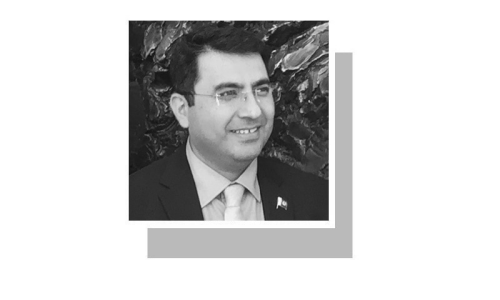The spectacle of unarmed civilians blocking army tanks, overpowering soldiers and forcing them to the ground in the streets seemed surreal. It was a rare show of people’s power defeating a coup attempt. What happened in Turkey last weekend is a sign of changing times.
Although it was a putsch by renegade members of the armed forces, the events of the past week have completely altered the power dynamics in the country where the military had for long wielded supreme authority. It may not be a victory for democracy, but certainly if a triumph for a populist elected leader-turned-autocrat.
Editorial: Post-coup Turkey
For almost a century, since the birth of modern Turkey, the military had remained the guardian of the country’s secular tradition. The military’s political role has been enshrined in the constitution that legitimised its frequent intervention in the country’s politics. It had successfully staged three coups in the last century and had executed elected leaders. The Islamists were barred from politics for not being in line with the country’s founding vision.
The danger of the military striking back has not gone away as Erdogan consolidates his power.
But the situation changed dramatically over the past decade with the coming to power of the Justice and Development Party (AKP), a socially conservative party with an agenda for economic development led by Recep Tayyip Erdogan, in 2002. The party has won four elections since then. Its popularity went up each time it pulled out the country out of political instability and perpetual economic crisis. Turkey became one of the fastest-growing economies. The country has earned a coveted place among the top 20 global economies.
This remarkable economic turnaround of Turkey strengthened the civilian authority and consequently undermined the power and influence of the military. Erdogan, who earlier served two terms as prime minister and was recently elected as the country’s president, had opened up cases against retired top military officers for plotting a coup against elected governments, many of whom are serving jail sentences. He had further consolidated his power by purging the military.
This accumulation of power has made Erdogan unarguably the most powerful leader since Mustafa Kemal, the founder of modern Turkey. That has also turned him into an autocrat. He has ruthlessly crushed any opposition and clamped down on the independent media. His rule has also eroded the secular character of the country, raising its Islamic identity. All these factors could be the reason behind the mutiny within the military.
For sure, it was mostly Erdogan supporters who came out on the streets defying the rebels, but secular forces too backed the government despite being victimised by the increasingly authoritarian rule of Erdogan. That underlines the growing political consensus in Turkey that a military takeover is not a solution.
It, however, remains to be seen whether the triumph would make Erdogan more autocratic, or return him to the democratic path. The danger of the military striking back has not gone away as Erdogan consolidates his power. It is hard to imagine the same kind of public uprising against a more organised and coordinated coup attempt in the future.
What happened in Turkey has triggered intense political debate in Pakistan about whether the same could happen here in the event of a military intervention. With a common tradition of frequent military coups in the two countries, the comparison seems inevitable. Imran Khan has further fired up the controversy by declaring that the people would come out in support of the military in Pakistan. One is not sure whether it is just wishful thinking of a political leader longing for some ‘divine’ help or whether he is merely reflecting the public frustration with the Sharif government.
Surely the PTI chairman is not the only one predicting a smooth takeover if the generals decide to move in. Pakistan’s past experience may lend some credence to such arguments.
Yet one must not ignore the changing political dynamics in the country that may not allow the return of military rule, notwithstanding the public disenchantment with the government and desire of some politicians and self-serving TV anchors. Surely the military leadership is mature enough to understand the cost and political ramifications of any Bonapartism.
There is little probability of a Turkey-like popular resistance to any military takeover bid in Pakistan. Yet there is no mass welcome waiting for a potential coup-maker either. Indeed the armed forces have regained public respect and won admiration for their role in fighting militancy and terrorism in the country.
Gen Raheel Sharif may well be the most popular person in the country. But it would certainly be a different situation if he decided to intervene. Imran Khan and others of his ilk are grossly mistaken about the public’s likely reaction to a military takeover. It is no more a situation where the generals could just walk into the corridors of power amidst public cheering. Despite bitter political rivalries, most of the political parties are in agreement not to support any direct military intervention.
Interestingly, days before the bungled putsch in Turkey, posters imploring Gen Sharif to take over appeared in all the major cities of Pakistan. Similar posters appeared earlier too when some obscure groups took out rallies in support of the army chief. But there was no groundswell of support for the move. It only brought embarrassment to the general, who has already announced he will not seek another term in office.
Despite all the problems of governance and ineptitude, the political system is still working. Unlike in the past, all the major political parties have stakes in the present political order. All of them are part of the power structure and are not likely to support any move to derail the system, notwithstanding Imran Khan’s dire predictions.
What Imran Khan has failed to understand is that it would be a collective failure of the political forces and not just of the Sharif government if the military returns to power and is greeted by the people. Pakistan may not be Turkey, but those inviting military intervention must learn some lessons from the events of the last week.
The writer is an author and journalist.
Twitter: @hidhussain
Published in Dawn, July 20th, 2016















































